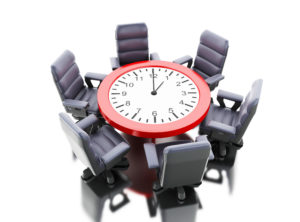Legal Requirements for Lunch and Break Times
Whether you’re just starting to work or you’ve switched job locations, you might be wondering about how lunch and break times work during your working hours in terms of employment law in San Francisco. According to Federal Law, an employer is NOT required to give you breaks for rest-time or meals. But the Federal Law does regulate how breaks are given to employees and if they are paid or not.
Short Breaks While At Work
One of the most common questions when it comes to employment law in San Francisco, is are breaks paid or not? In short, when an employer offers their employees short breaks – usually ranging from 5 to 20 minutes, the law will require the employer to pay for those breaks. The biggest reason behind this is because they are considered work time and they will account for the wages you make, as well as overtime.

In the state of California, employers are required to give employees rest breaks. The way this usually works is that the employee will get a 10-minute rest break for every 4 hours worked.
When it comes to employment law in San Francisco you might be able to get breaks, however, you cannot take unauthorized breaks or breaks for longer than the employer intends. This means that if you take a break without asking a supervisor or manager – or you take a break longer than 20 minutes, you could be held responsible for breaking the rules.
It should be noted though, that your employer must note that unauthorized break time will, in turn, lead to a punishment or lost wages for the day. If they do not make note of that and you got punished or lost your wages, this would be something you could fight, because you weren’t aware of it.
Meal Breaks While At Work
While a short break of 5 to 20 minutes is paid, meal times are not – especially if they are longer breaks. The employment law in San Francisco also states that employers cannot make an employee work during or through their meal break.
For example, if you are a receptionist at a warehouse and you take your lunch but also are asked to answer phone calls, file paperwork or anything else work related – you would need to be paid for that time.
Most states in the US do not require an employer to allow employees to have meal breaks. Only 24 states in the US do and these breaks require a minimum 30-minute lunch break. California is one of those states, but you must work at least 5 hours in one day to receive it.
Americans With Disabilities Act
You should also be aware that if you have any type of disability while at work, that your breaks or meal time might require more time for accommodations. For example, if you are disabled and in a wheelchair and need to take a bathroom break and bathroom breaks are only 5 minutes, you might need an additional 5 minutes, 10 in total if you are in a wheelchair.

This time should not be counted against you, nor should you be reprimanded, punished or have wages taken away from you because of this.
If you feel that you have been treated unfairly, or discriminated against by your employer according to employment law in San Francisco it would be in your best interest to hire a lawyer. Most lawyers these days offer free consultations so you can talk about the case and see if they would be a good fit for your case.
Photo Credit: Shutterstock Mego Studio/ Syda Productions